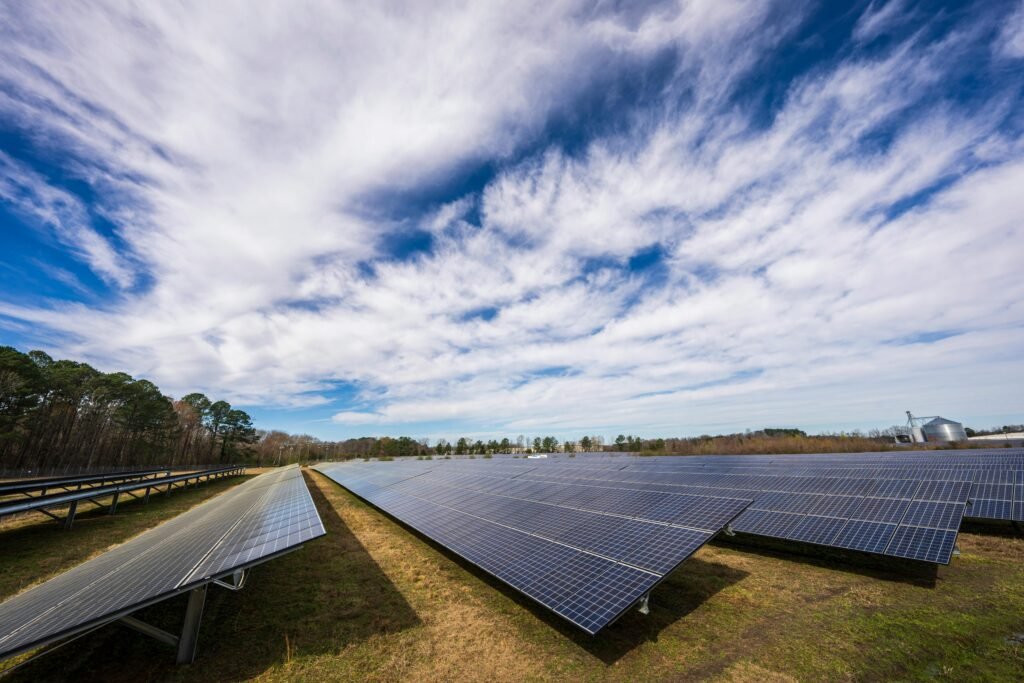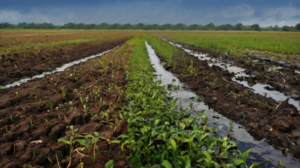Sustainable Food Choices for a Greener Planet

Sustainable eating is a concept that emphasizes making food choices that are beneficial for our planet. The importance of these choices cannot be overstated, as unsustainable eating contributes significantly to environmental degradation, climate change, and loss of biodiversity. This article aims to guide you through ten sustainable food choices that can lead to greener eating habits. By embracing these practices, you can play a vital role in protecting our environment while enjoying delicious, nourishing meals.
Local and Seasonal Produce
Embracing local and seasonal produce offers numerous benefits that support sustainability. By consuming foods grown close to home, you significantly reduce transportation emissions. Local food travels shorter distances, leading to less pollution and a smaller carbon footprint. Additionally, many local farmers sell their produce without excessive packaging, which helps decrease plastic waste.
Benefits of Local Produce
Choosing local foods not only enhances your health but also protects vital ecosystems. When you support local farmers, you contribute to maintaining green spaces, promoting biodiversity, and preserving clean air and water. Furthermore, purchasing locally fosters a sense of community, connecting you with the producers and their sustainable practices.
“Supporting local farmers is essential for a thriving ecosystem and community engagement.”
Statistically, consuming locally grown foods can significantly cut down on your household’s carbon emissions. While transportation is a factor, the type of food consumed also plays a crucial role. By prioritizing local produce, you make a conscious choice that benefits both your health and the environment.
Embracing Plant-Based Diets
Adopting a plant-based diet offers substantial advantages for sustainability. These diets are linked to significant reductions in greenhouse gas emissions, with a transition potentially cutting emissions by up to 49%. As food systems contribute 21-37% of global GHG emissions, shifting away from animal products, particularly red meat, is essential for addressing climate change.
Here are some key advantages of embracing plant-based diets:
Lower carbon footprint
Reduced water usage — 43,000 liters for 1 kg of beef versus just 1,000 liters for 1 kg of grain
Conservation of biodiversity
Improved human health outcomes
| Diet Type | Greenhouse Gas Emissions (kg CO2e/day) |
|---|---|
| High-meat diet | >150 |
| Low-meat diet | 75 |
| Vegan diet | 37.5 |
Transitioning to a vegan diet can lead to 75% less climate-heating emissions compared to meat-rich diets. Additionally, it reduces water pollution and land use by significant margins. By making this shift, we can collectively contribute to a healthier planet.
Reducing Food Waste
Reducing food waste is crucial for a sustainable lifestyle. It not only helps conserve resources but also reduces greenhouse gas emissions. In fact, the Food Waste Index Report 2024 highlights that approximately 931 million tons of food is wasted globally each year. This staggering amount emphasizes the need for actionable strategies to minimize waste at home.
Simple Tips to Reduce Waste
Here are some practical steps you can take:
Mindful Shopping: Be intentional about your purchases. Plan meals, check what you have, and create a shopping list to avoid impulse buys.
Utilize All Food: Use every part of the food. For example, sauté beet greens or make breadcrumbs from stale bread.
Proper Storage: Learn how to store different foods effectively to extend their shelf life.
Compost Scraps: Set up a composting system for inedible scraps, reducing landfill waste.
“Per capita household food waste generation is more consistent globally than previously thought.”
By implementing these strategies, you can significantly reduce food waste in your household. Remember, every small effort counts towards a greener planet.
Supporting Organic Farming
Organic farming plays a critical role in promoting environmental sustainability. By utilizing natural processes and avoiding synthetic inputs, it contributes positively to our ecosystem. This approach not only produces healthy food but also nurtures the planet.
Environmental Benefits
Here are some key benefits of organic farming:
Soil Health: Organic practices enhance soil fertility and structure through the use of natural fertilizers and compost. This leads to improved water retention and reduced erosion.
Biodiversity: By avoiding synthetic pesticides, organic farming fosters a diverse ecosystem that supports various plant and animal species, crucial for maintaining ecological balance.
Water Conservation: Techniques such as crop rotation and cover cropping help conserve water and protect water quality in nearby streams and rivers.
In contrast to conventional farming, which relies heavily on chemical inputs, organic farming prioritizes overall system health. Conventional methods often lead to soil erosion, water pollution, and increased greenhouse gas emissions. Organic practices, however, promote a cleaner environment and support natural ecosystems.
By choosing organic, you contribute to a sustainable future while enjoying healthier food options.
Sustainable Seafood Choices
Choosing sustainable seafood is essential for protecting our ocean ecosystems. Overfishing is a significant threat to marine life, leading to the depletion of fish populations and disrupting the balance of ocean environments. By making informed seafood choices, we can support responsible fishing practices that benefit both the oceans and communities that rely on seafood as a primary protein source.
“Sustainable seafood choices are crucial for protecting our oceans and ensuring food security for future generations.”
Here are some key guidelines for selecting sustainable seafood:
Familiarize with Seafood Choices: Know which seafood is a ‘Best Choice’ and what to avoid, such as imported shrimp and bluefin tuna.
Look for Certifications: Seek third-party certifications from organizations like the Marine Stewardship Council (MSC) or the Aquaculture Stewardship Council (ASC).
Create a Personalized Guide: Identify your frequent purchases and refer to local sustainable seafood guides.
Diversify Your Choices: Explore less popular seafood options to reduce pressure on overfished species.
Support Local Fisheries: Choose locally sourced seafood to minimize carbon footprints and boost local economies.
Stay Informed and Engaged: Continuously educate yourself on sustainable practices and make informed purchases.
By following these guidelines, you can contribute to healthier oceans and a more sustainable food system.
https://nutritionsource.hsph.harvard.edu/
Reducing Meat Consumption
Meat production has a significant impact on the environment. It accounts for over 11%-20% of global greenhouse gas emissions and occupies more than three-quarters of agricultural land use. This contributes to climate change and is a leading cause of tropical deforestation. Reducing meat consumption is essential for mitigating these environmental effects.
https://blissfullway.com/immune-boosting-foods-for-summer/Environmental Impact of Meat
Beef production is especially concerning, requiring seven times more land and generating seven times more emissions than chicken per gram of protein. While there is a growing demand for sustainable meat alternatives, it’s crucial to recognize that any solution must encompass various factors, including animal welfare and local farming support.
To effectively decrease your meat intake, consider these actionable strategies:
Designate specific days as meatless, such as ‘Meatless Mondays’. Explore plant-based proteins like beans and lentils, and aim to fill half your plate with vegetables. Try new vegetarian recipes to diversify your meals, and be mindful of portion sizes.
By implementing these strategies, you can enjoy a nutritious diet while making a positive impact on our planet.
Conclusion and Call to Action
Making sustainable food choices is crucial for protecting our planet. By opting for local produce, reducing meat consumption, and minimizing food waste, we can significantly lessen our environmental impact.
Now is the time to take action. Start by incorporating more plant-based meals into your diet, designating meatless days, and exploring new recipes. Together, we can embrace these choices for a greener, healthier future.
FAQs on Sustainable Food Choices
Here are some common questions about sustainable eating, along with brief answers to enhance your understanding.
What is sustainable eating? Sustainable eating involves choosing foods that are produced in a way that is environmentally friendly. This includes considering the impact of food production on greenhouse gas emissions, biodiversity, and water use.
How can I reduce my meat consumption? You can start by designating meatless days each week. Exploring plant-based alternatives like beans, lentils, and tofu can also help.
Why is local produce better for the environment? Consuming local and seasonal foods reduces the carbon footprint associated with transportation. It also supports local farmers and promotes biodiversity.
What are some tips for minimizing food waste? Plan your meals, store food properly, and use leftovers creatively. This can significantly reduce the amount of food that goes to waste.








